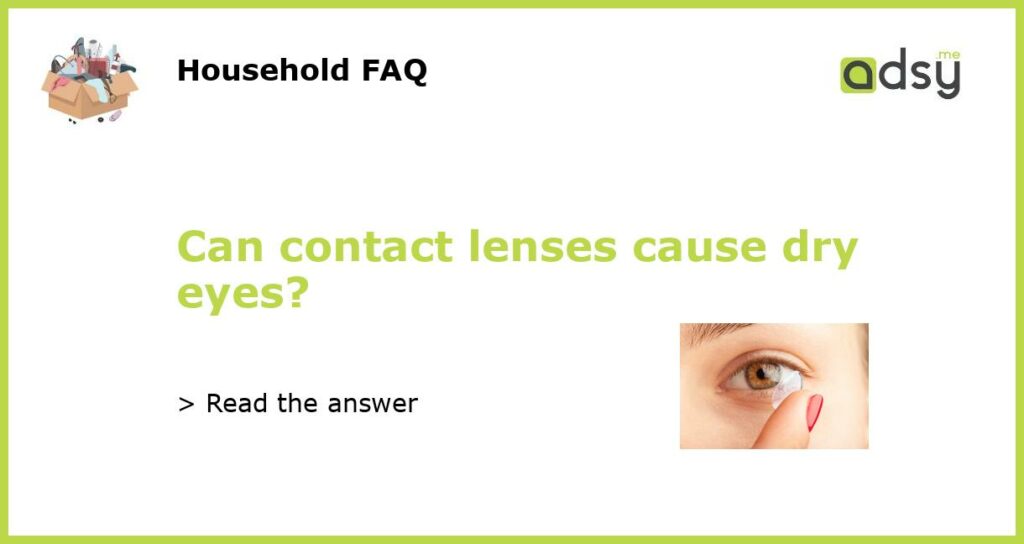Can contact lenses cause dry eyes?
Many people who wear contact lenses have experienced dry eyes at some point. While contact lenses themselves do not directly cause dry eyes, they can contribute to dry eye symptoms or exacerbate an existing dry eye condition. Understanding the potential causes and risk factors can help contact lens wearers manage and prevent dry eyes.
How do contact lenses contribute to dry eyes?
Contact lenses can cause dry eyes through a variety of mechanisms. One common cause is the reduced oxygen flow to the cornea when wearing contacts. The lenses create a barrier that limits the amount of oxygen that reaches the surface of the eye, leading to dryness and discomfort. In addition, contact lenses can interfere with the natural tear film on the eye, which helps keep the eye lubricated. This interference can disrupt the balance of tears and result in dryness.
Risk factors for contact lens-related dry eyes
Several factors can increase the risk of developing dry eyes while wearing contact lenses. One significant risk factor is extended wear. People who wear their contact lenses for longer periods, such as overnight, are more likely to experience dryness due to the extended period of reduced oxygen flow to the cornea. Additionally, certain types of contact lenses, such as those made of certain materials or those that retain moisture poorly, can contribute to dryness. Environmental factors, such as exposure to dry or dusty environments, can also worsen dry eye symptoms in contact lens wearers.
Preventing and managing dry eyes while wearing contact lenses
There are several steps that contact lens wearers can take to prevent or manage dry eyes. Firstly, it is important to follow proper hygiene and care practices for contact lenses. This includes cleaning and disinfecting them regularly and replacing them as recommended by the eye care professional. It is also crucial to avoid wearing contact lenses for longer than recommended and to give the eyes regular breaks from contact lens wear. Additionally, using lubricating eye drops or artificial tears can help relieve dryness and improve comfort while wearing contacts.
When to seek professional help
If dry eyes persist despite following proper care practices and using lubricating eye drops, it is essential to seek professional help from an eye care provider. They can evaluate the extent of the dry eye condition, identify any underlying causes, and recommend appropriate treatment options. These may include prescription eye drops, changes in contact lens type or wear schedule, or other interventions to address the dry eyes.






